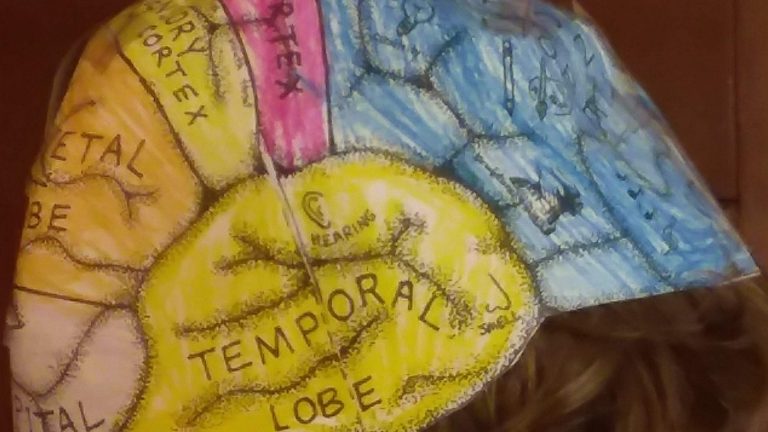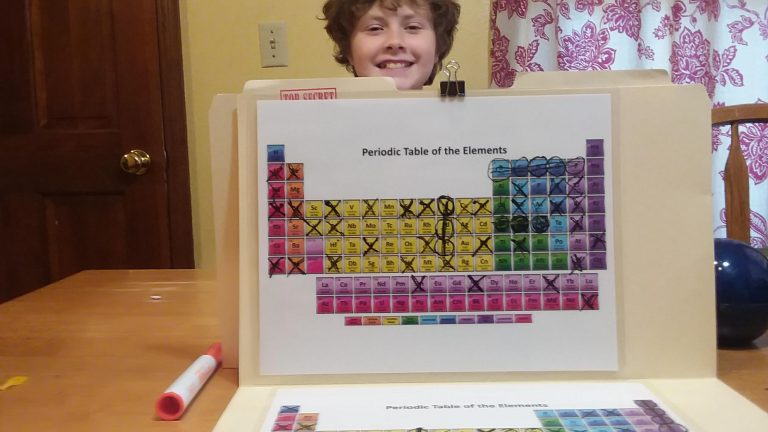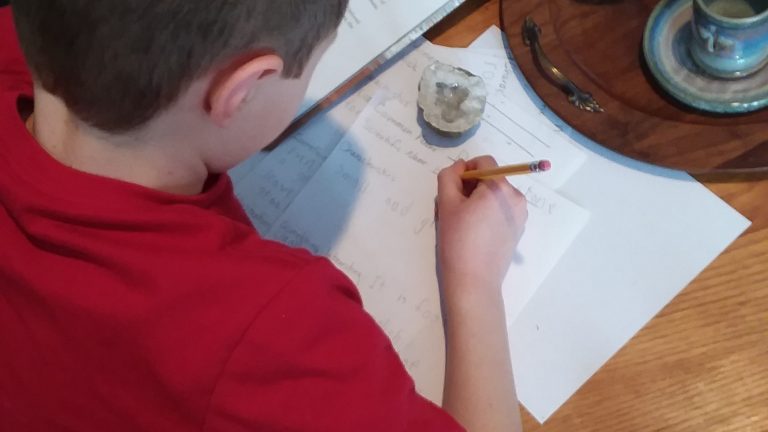The Spring quarter of my son’s 4th grade year (10 years old) I realized that there were some changes that I needed to address. My son was sitting at the kitchen island and we were having an in depth discussion about SOMETHING. I don’t recall what we were talking about but I do remember the light bulb moment I had. He had asked me a question and we were discussing my answer. I wasn’t sure that he understood my answer so I explained it several different ways until it appeared he understood what I had said. He looked up at me a bit frustrated with a little fire in his eye and said, “You are always, right”.
I quickly realized that we weren’t actually having a discussion we were having an argument. My son was developing his own theory, his own understanding and developing an opinion and an argument. This was a teachable moment I just didn’t realize the teachable topic. I was teaching him about whatever we were discussing but the teachable moment was in fact about the art of discussion and disagreements.
This is a hard time in a mother’s life. When the critical thinking part of your child’s brain kicks in you may think your child is suddenly very disagreeable. But reality is that a lot of what your child is thinking and feeling is a bit out of control and honestly out of his control. At this point it is important as mothers to recognize this and understand our role in guiding our children into adult life with discipline, respect and self control for ourselves and our child.
At this stage in life, your child is fine tuning logic, developing critical thinking skills and evaluating the world around him based on his own experiences and opinions. This is also the age that hormones begin to play a part in your child’s moods and responses. It can be a delicate time for mothers and child, alike.
This stage can be fun, frustrating and a bit chaotic. You might notice that your child laughs a little more at your humor and his humor is developing into what you enjoy. On the other hand it might start to feel like you are no longer connecting with your child. It might start to feel like your once mild mannered sweet little boy wants to argue. And to be honest he may WANT to argue with you. What is far more important than the topic of argument is that your child’s brain is growing and maturing and your child is in need of guidance. Equally as important as his brain development is that he gets the tools he needs to process information and interact in a respectful way.
Just as when your little one was small you taught him how to speak sweetly and use good manners and etiquette, you will need to reiterate those lesson again in a more mature fashion. This goes far beyond please and thank yous. You taught your child to speak nicely and use nice words. You have taught your child to be respectful and to listen and do what is asked of him. You spoke softly and tenderly to your little darling so he would learn to speak sweetly. And now you get to do it all over again.
This guidance is for both the growth of your child and your sanity. Just like when you were teaching your toddler you may have to reteach your preteen until he gets it right; correcting and reiterating the appropriate way to discuss an issue and have a disagreement in a respectful way. This is for your sake and the sake of your child’s ability to have a disagreement that does not end in an emotional outburst. You want your (eventual adult) child to be able to speak up for himself all the while being kind, patient, intelligent, open minded and persuasive .
An important conversation to have many times over is that there is more than one way to see a view point, complete a task or interpret a situation. Be sure to give examples and explain why someone might want to do something that works for him and others may do something different because that works for them. Emphasize that being married to an idea can limit one’s knowledge and understanding. Explain how sometimes we become committed to an idea or a process because it is what we figured out, what we do or what works for us. This commitment can eliminate the idea that there are other ways and possibly better ways that would work better for others or ones self.
Finding alternative ways is also a problem solving technique. It encourages your child to look for different answers to questions. This will then help your child look for more information to ensure the answer they come up with is based on a collective of information not just their own life experience. Which in turn will result in a good solution to a problem, completed task or a more efficient outcome.
This is also true in a discussion. Learning that there are alternative ways to get your point across and alternative ways to state an opinion can be an invaluable lesson. It really is two fold and tied to brain development. On one hand you have the life long lesson and realization that there are many right answers to any given problem. On the other hand there are many right ways to hold a discussion. As you teach your child how to hold a discussion in a respectable manner you are encouraging your child to find a solution to a problem. (Potentially the problem of not being heard or not being taken seriously)
Let your child know that when evaluating the world to consider that he may not have all of the information needed to make a complete decision or opinion and to leave those decisions and opinions open to include new information as it becomes available. It is also important to teach your child that it is okay to change an opinion or thought about something based on new information. It isn’t always an issue of what is right and wrong it is an issue of learning and growing and developing one’s beliefs and values. Clearly based on our faith there is right and wrong…but right now when developing ones own theories about the world around him it is okay to change one’s thoughts on issues as more is learned.
That being said, it is essential at this point in parenting to reiterate our faith and belief in the Lord’s word. The Lord’s word will ground your child’s opinions, beliefs and problem solving techniques. Reiterate that the Word sets the standards for life. That God’s standards and commandments are to protect us and allow us to grow closer to the Lord. Self love, pride and belief that only oneself holds the correct answer will only put a wedge between you and your loved ones and is not what the Lord wants from us. Humility in the face of critical thinking will draw your child closer to the Lord and leave them open to new ideas.
It is vital to teach your preteen (and teen) that the best way to collect more information and develop solid opinions is through discussion, research and asking questions. The art of discussion is a learned skill. We need to mimic what is appropriate in our daily conversations with our children.
Be sure to let your child know why it is important if you don’t agree with someone to ask many questions. Advise him to try to understand where that person is coming from. Which is the exact model we want to display to this critical, judging, sometimes rude little darling. We can model this by asking our child questions as to their opinion.
So in one teachable moment when our preteen displays critical thinking attributes we can model appropriate discussion tactics by asking questions, and by modeling and discussing the appropriate way to have a disagreement, discussion or argument in a respectful meaningful way.
It is appropriate to give your children the right words to use. Such as, I was wondering what your thoughts are on… What do you think about….
If you notice that your preteen is resisting you guidance; addressing the manner in which the critical thinking attribute is delivered needs to be done as well. A couple good questions to ask are: What is the intent of your comment? What did you really want to get across? Is there a better way that you could have said that same statement? Is there a kinder way to have gotten your point across?
Be prepared with answers to your own questions. Your child’s answer might be “I don’t know. ” I don’t know can mean many things 1) I don’t want to tell you. 2) I don’t think you will like my answer. 3) I don’t want to disappoint you and of course 4) He might not know.
Now something you might need to admit is that your little darling might be speaking the truth. Regardless, sometimes the truth does not need to be spoken, especially when it comes to mom’s sense of style (wink wink).
The critical thinking development stage of a boys life can drive the nicest of mamas a bit crazy. But you must practice great self control with how you react and how you speak to your child. You want to mimic the behavior you want to see in your child. If your child is suddenly critical of your cooking, your teaching or your LAUGH. Before you recognize how DISRESPECTFUL and UNGRATEFUL your child is behaving…STOP…and ask your son…Was that a necessary comment? Was that a kind thing to say? A follow up question might be “What kind of response did you hope to receive from your comment?’ I think it is also important to point out when your child is being rude or unkind. This can be done in a loving way with the right tone of voice.
You will get yourself into trouble if you don’t nip the disrespectful tone or words. Your child could develop an attitude that he knows better than you or even more than you. This will cause some serious issues for you as a parent now and in the future. It may also set a superior attitude that will result in self love, pride and a hard adult life.
Stay strong Moms. I would love to hear how your are dealing with the critical thinking/ logic stage of your preteen/teen. Please leave a comment below.
Happy Homeschooling.





